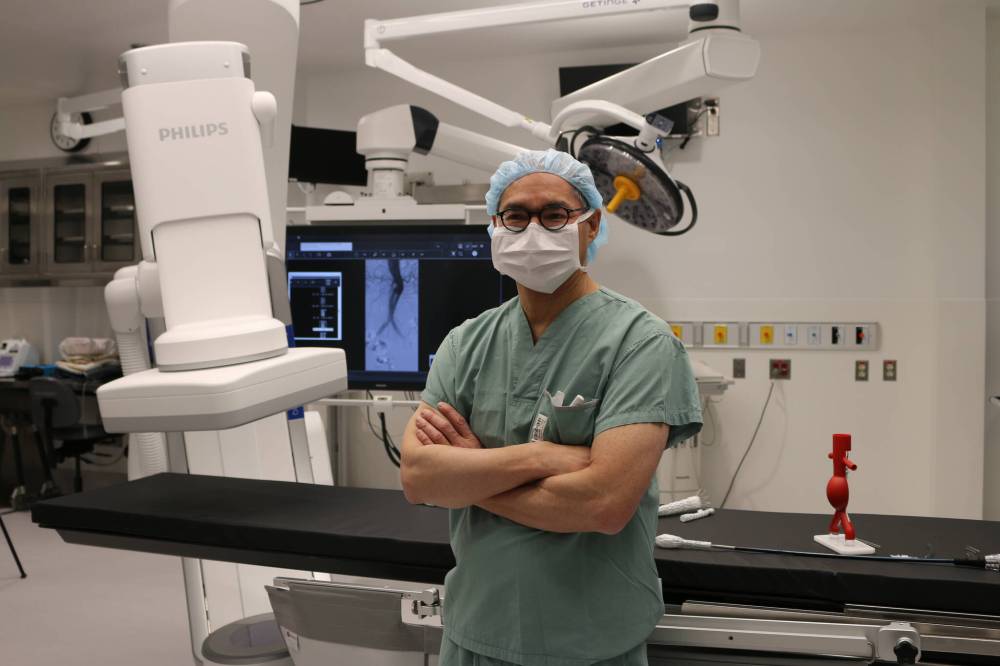Manitoba lauded for reducing doctors’ paperwork
Advertisement
Read this article for free:
or
Already have an account? Log in here »
To continue reading, please subscribe:
Monthly Digital Subscription
$1 per week for 24 weeks*
- Enjoy unlimited reading on winnipegfreepress.com
- Read the E-Edition, our digital replica newspaper
- Access News Break, our award-winning app
- Play interactive puzzles
*Billed as $4.00 plus GST every four weeks. After 24 weeks, price increases to the regular rate of $19.95 plus GST every four weeks. Offer available to new and qualified returning subscribers only. Cancel any time.
Monthly Digital Subscription
$4.99/week*
- Enjoy unlimited reading on winnipegfreepress.com
- Read the E-Edition, our digital replica newspaper
- Access News Break, our award-winning app
- Play interactive puzzles
*Billed as $19.95 plus GST every four weeks. Cancel any time.
To continue reading, please subscribe:
Add Free Press access to your Brandon Sun subscription for only an additional
$1 for the first 4 weeks*
*Your next subscription payment will increase by $1.00 and you will be charged $16.99 plus GST for four weeks. After four weeks, your payment will increase to $23.99 plus GST every four weeks.
Read unlimited articles for free today:
or
Already have an account? Log in here »
Hey there, time traveller!
This article was published 01/02/2024 (753 days ago), so information in it may no longer be current.
MANITOBA has become a national leader when it comes to cutting the amount of paperwork required by doctors, which ties them up so they spend less time treating patients.
A report by the Canadian Federation of Independent Business, which is being released today during its 15th annual Red Tape Awareness Week, found Manitoba and Nova Scotia lead the way by measuring the administrative burden faced by doctors and setting a target to reduce it.
The report praises Manitoba’s joint task force, which is working on the issue, for recommending an initial target of reducing unnecessary paperwork for doctors by 10 per cent. Nova Scotia was lauded for cutting unnecessary paperwork by an estimated 250,000 hours a year.

Dr. Randy Guzman says paperwork takes an hour or two each workday. (Winnipeg Free Press files)
“While red tape reduction doesn’t solve all the burdens on health care, it is an easy solution to at least ease physician burnout,” said Brianna Solberg, the federation’s director of provincial affairs for the prairies and the north.
“Reducing the physician administration burden is a concrete way government can, and should use to help address issues facing Canada’s health care systems.
She said her lobby group is glad to see Manitoba’s new government supports the mandate of the task force.
Last March, following an earlier CFIB report on the administrative load faced by doctors, the previous Tory government set up a joint task force to tackle the subject. The task force members come from the government, Doctors Manitoba, physicians, and the federation.
The task force released an interim report last summer that said Manitoba doctors, on average, spend 10.1 hours doing administrative tasks every week. Physicians believed it to be unnecessary 44 per cent of the time.
Paperwork that contributed the most to doctors’ burden included private insurance forms, electronic record systems, and health system forms such as to order tests or refer patients for procedures.
Doctors noted other problem paperwork involved third-party forms such as sick notes, forms for Manitoba Public Insurance, the Workers Compensation Board of Manitoba, and federal tax benefits.
The report said it means more than 633,000 hours are spent each year on unnecessary administrative tasks, the equivalent of more than 1.9 million patient visits.
“This is a big deal for physicians,” said Dr. Randy Guzman, a task force member and president-elect of Doctors Manitoba.
“It is increasing over the years. It is a big burden in terms of extra time and effort.”
Guzman said it is especially concerning given Manitoba’s shortage of doctors; the province has the lowest number of family physicians per capita.
“I’ve been in practice for 30 years,” he said. “Before I would catch up on my paperwork in a few hours (a week). Now I have to keep up with an hour or two a day.
“We must keep working together to reduce the unnecessary administrative burdens that get in the way of patient care and physician well-being… we need to reduce where we can and delegate where we can.”
Guzman said it could draw more doctors to this province.
“If we can improve in this one area, it may help us recruit and retain doctors.”
Solberg said the federation will continue to hammer on behalf of the issue both in Manitoba and across the country.
“There is a long way to go, but we’ll continue to work with the Manitoba government,” she said.
kevin.rollason@freepress.mb.ca

Kevin Rollason is a general assignment reporter at the Free Press. He graduated from Western University with a Masters of Journalism in 1985 and worked at the Winnipeg Sun until 1988, when he joined the Free Press. He has served as the Free Press’s city hall and law courts reporter and has won several awards, including a National Newspaper Award. Read more about Kevin.
Every piece of reporting Kevin produces is reviewed by an editing team before it is posted online or published in print — part of the Free Press‘s tradition, since 1872, of producing reliable independent journalism. Read more about Free Press’s history and mandate, and learn how our newsroom operates.
Our newsroom depends on a growing audience of readers to power our journalism. If you are not a paid reader, please consider becoming a subscriber.
Our newsroom depends on its audience of readers to power our journalism. Thank you for your support.





